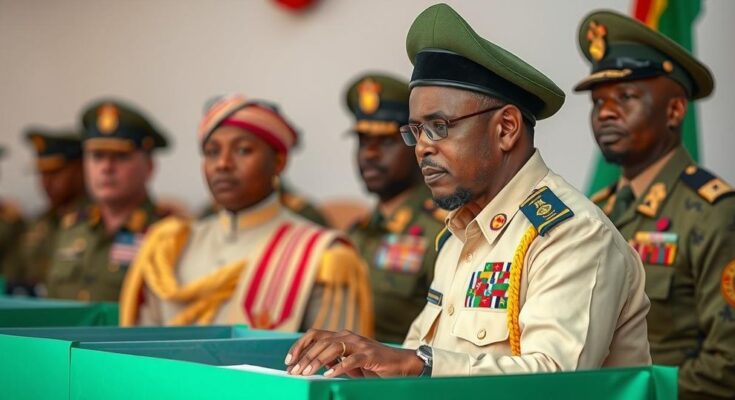Chad voted in a general election on Sunday, aiming to end three years of military rule. Turnout was notably low at 38%, attributed to an opposition boycott.
Chad held a general election on Sunday, marking a significant milestone in the government’s efforts to transition away from three years of military rule. However, the anticipated voter turnout appears to be disappointing, primarily due to a call for a boycott made by opposition parties. Preliminary reports from the National Elections Management Agency indicated that only 38 percent of eligible voters participated in the electoral process to elect a new parliament, provincial assemblies, and local councils.
The election comes after the country experienced a hiatus from democratic governance following a coup d’état in April 2021, which resulted in a military-led transitional government. Authorities view this electoral exercise as a pivotal step towards restoring civilian rule and reestablishing democratic processes in Chad. Nevertheless, opposition groups have voiced concerns regarding the fairness of the election, urging citizens to refrain from casting their ballots in opposition to the current regime.
Chad has been under military rule since the death of President Idriss Déby in April 2021, following which a transitional government was established. The current ruling military junta has promised to guide the nation toward elections and civilian rule. However, the political climate has been tense, marked by widespread discontent from opposition factions who question the legitimacy and transparency of the government’s actions.
In summary, the general election in Chad represents a crucial attempt to end military rule and reinstate democratic governance. Despite the government’s optimistic outlook, the low voter turnout, exacerbated by the opposition’s boycott, raises significant questions about the election’s credibility and the overall political situation in Chad.
Original Source: www.caledonianrecord.com




